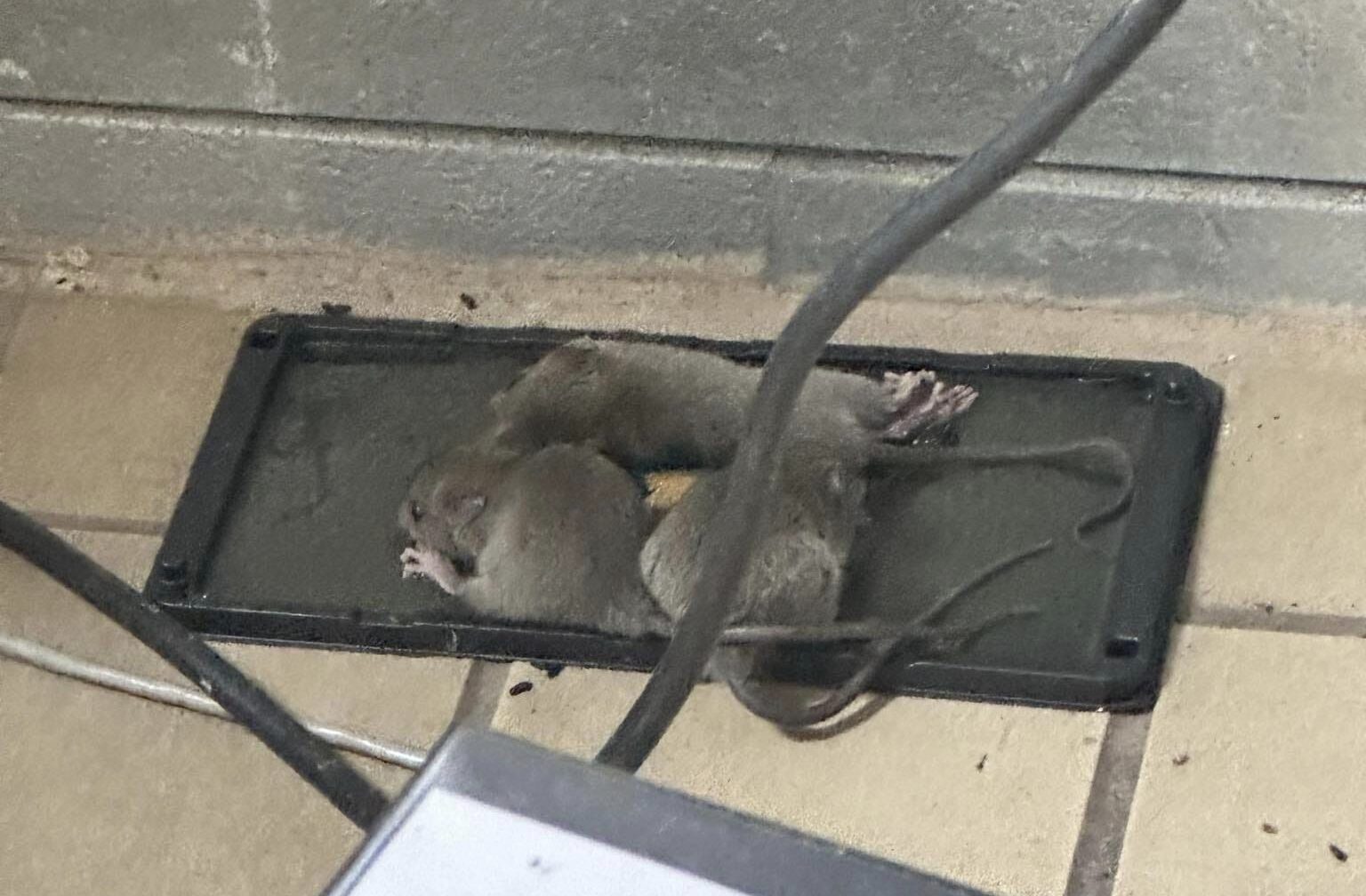

The main dining facility on Barksdale Air Force Base, Louisiana, was closed indefinitely as photos circulated online of what appeared to be a swarm of rats in the facility. The closure left many airmen on the base without their usual meal option at the dining facility.
Base dining facilities, or DFACs, are usually the primary dining option for single, younger airmen who live in barracks on base. DFACs generally are close to barracks, and are accessible by meal card. Junior enlisted troops are eligible to receive three meals per day at DFACs.
Air Force officials did not confirm that rats were a problem but told Task & Purpose that the dining hall would be closed until an ”issue” was resolved. The base announced the closure on April 9, saying that the DFAC would undergo “unanticipated but required maintenance actions that must be addressed immediately,” according to an email posted on the Facebook page.
However, after swarms of rats were found in the Red River Dining Facility, according to photos and videos posted on the popular Air Force amn/nco/snco facebook account, service members received an email about an abrupt closure.
Officials for the base told Task & Purpose that its civil engineer, entomology, public health, and force support teams “are working diligently to address the issue.”
Subscribe to Task & Purpose today. Get the latest military news and culture in your inbox daily.
“At this time, we don’t have a solidified reopening date as the mitigation efforts are ongoing and there will be a thorough joint inspection conducted by our teams to ensure the facility is safe to re-open,” a Barksdale spokesperson said in a statement.
The email posted to social media originally said that the dining facility or DFAC would be closed for two weeks and that 650 Barksdale Essential Station Messing Airmen with meal deductions would receive Basic Allowance for Subsistence during the closure.
This means enlisted troops would receive $460.25 per month and officers would get $316.98 per month for their meals, according to the Department of Defense’s 2024 BAS rates which are set based on the U.S. Department of Agriculture’s food cost index.
Air Force has 200 Pest Management troops
The latest vermin crisis follows a year of reports on quality of life issues affecting junior service members – including a Government Accountability Office report which found junior enlisted barracks and dorms did not meet Department of Defense health and safety standards due to mold, rats and broken security systems.
Servicemembers in half of the GAO’s discussion groups told the federal watchdog about “issues with pests, including bedbugs, rodents, cockroaches, and wasps.” At three out of 10 installations reviewed by GAO, officials said service members were in charge of pest control.
The Air Force even has nearly 200 active-duty airmen in positions called Pest Management specialists who are based at 48 installations around the world.

The position has a relatively unique job description in official documents.
“To serve as a pest management specialist, applicants must have a valid state driver’s license, normal color vision, be between the ages of 17 and 39, complete basic military training and have no record of claustrophobia or fear heights, insects, spiders, snakes or animals,” according to the DOD.
Just last week, members from the House Armed Services’ Quality of Life panel released a report which focused on housing issues, food insecurity, childcare issues and military spouse employment. The policy recommendations from the report will be the base text for the Fiscal Year 2025 National Defense Authorization Act – an unusual step that marks lawmakers’ greater attention on the issues.
“I’m also thrilled that it will serve as the base text for the NDAA, the most crucial and substantial bill for our military, which has been signed into law every year for over 60 years without fail,” Rep. Chrissy Houlahan said in a release.
The decision to include quality of life measures as the bill’s foundation also comes during a Congress stymied by polarized, political feuds, prolonging the latest federal budget which required several stopgap measures to prevent a government shutdown.
Lawmakers’ stark political differences have also prevented Congress from passing its $95.3 billion-dollar defense supplemental package to send more aid to Ukraine, fund Israel’s defense architecture and increase security needs in the Asia or Indo-Pacific region. Experts have warned of the dire consequences of Congress delaying funds to Ukraine, whose air defenses are running low, including the potential risk of a drawn out conflict with Russia that involves the U.S. and its troops.
The latest on Task & Purpose
- The Marines trolled the Navy on Instagram and it was awesome
- Kadena Air Base shows off new air power with an ‘elephant walk’
- Army Special Forces students are learning Ukrainian in new language course
- U.S. Army Vet and Ranger school graduate killed fighting in Ukraine
- Former Navy SEAL under fire for gunshot wound story used in campaign for Senate